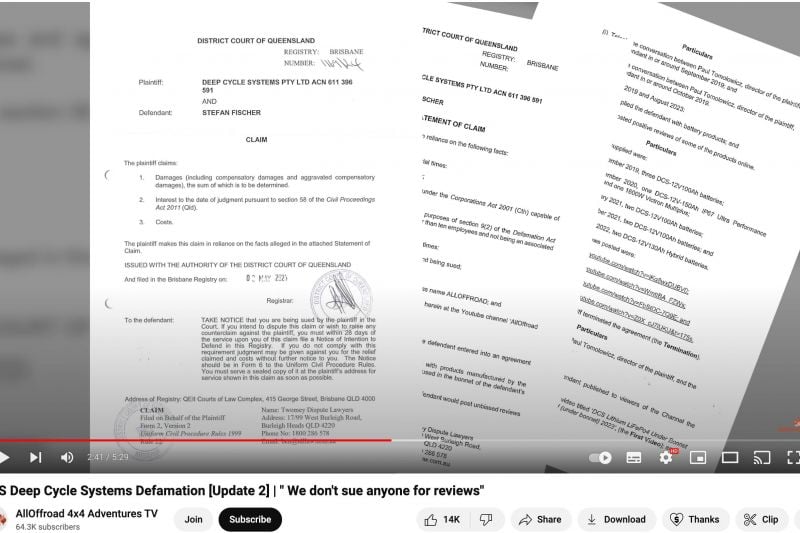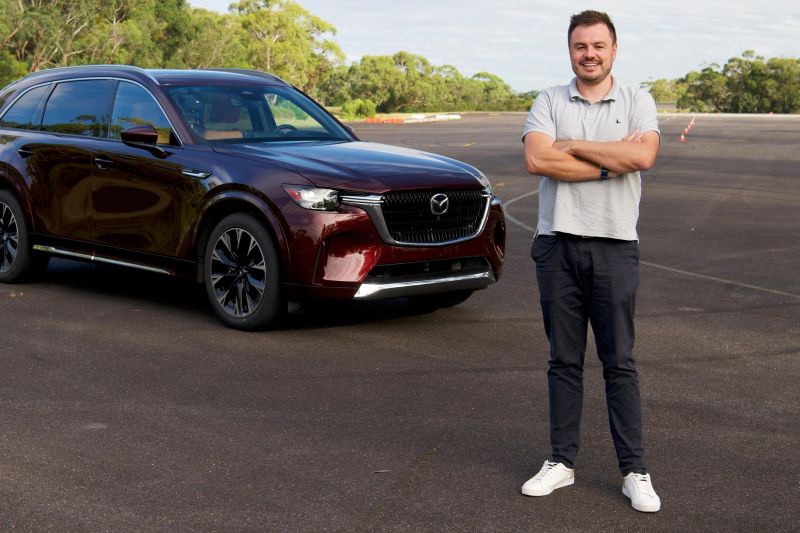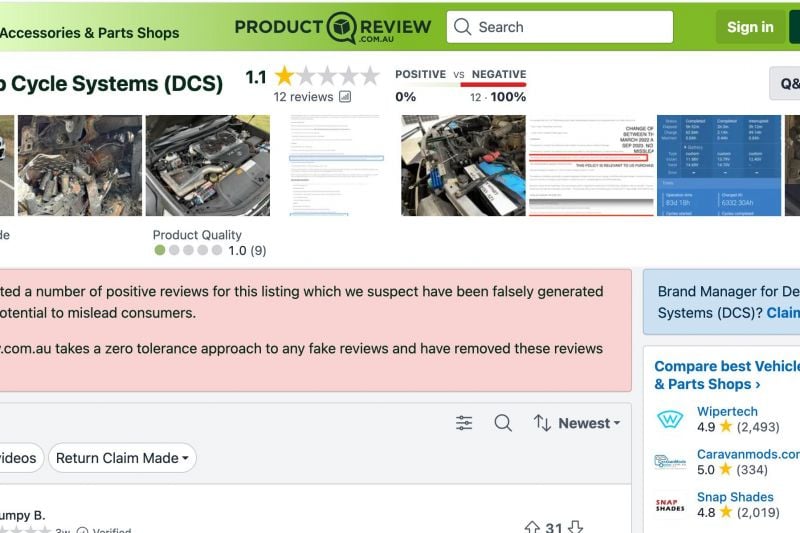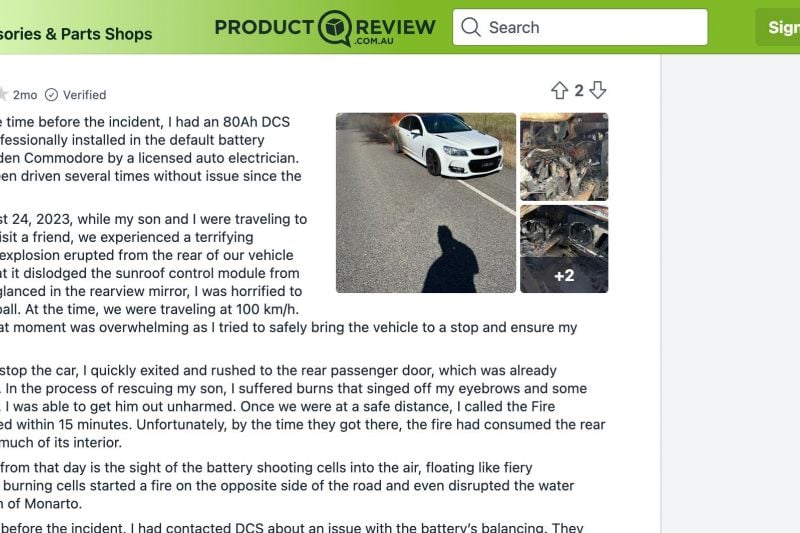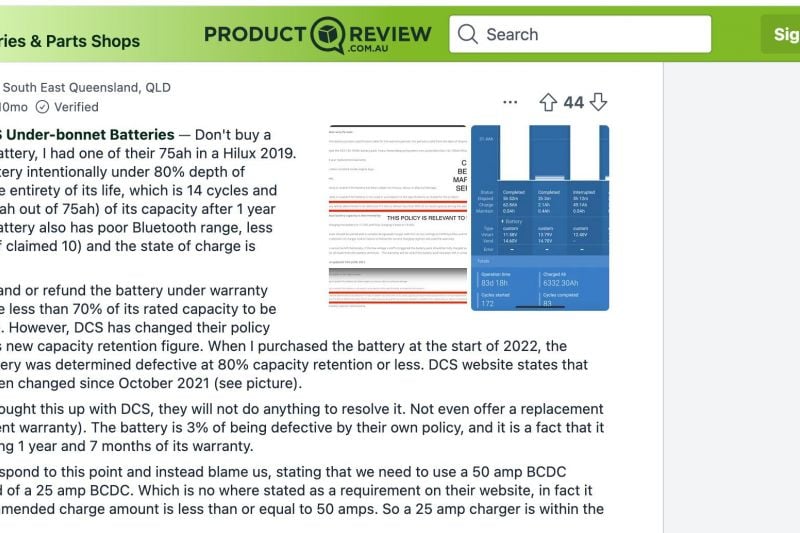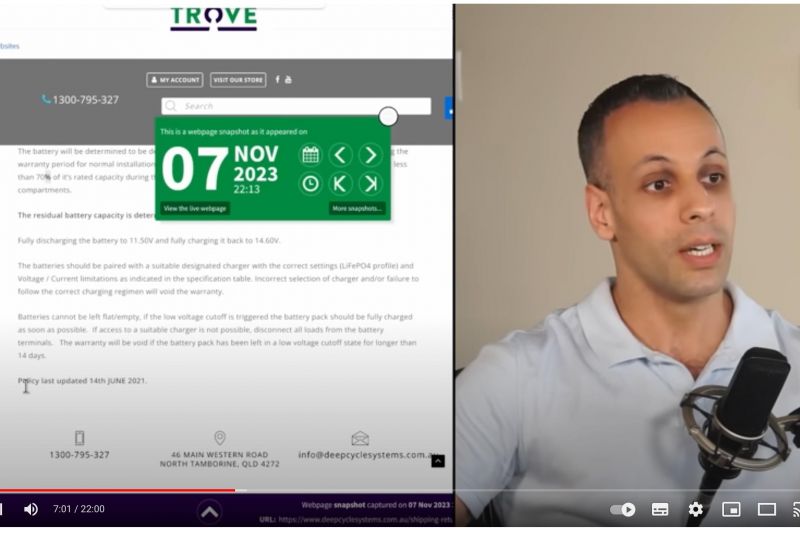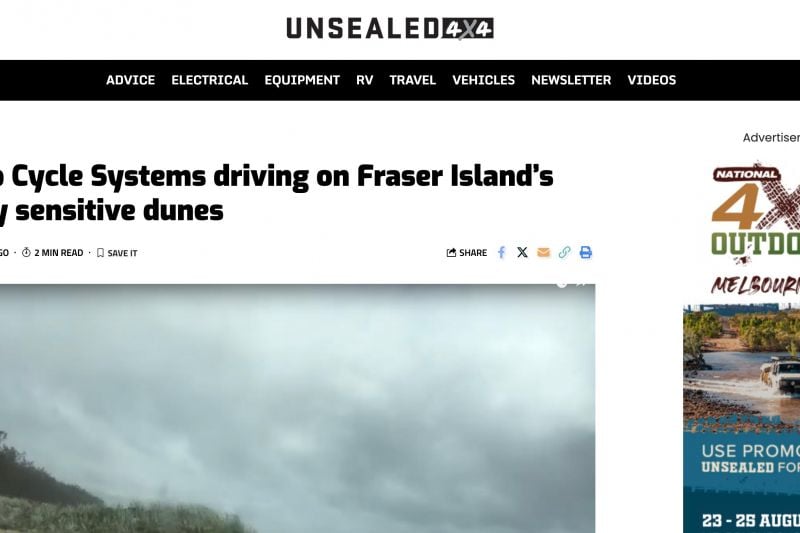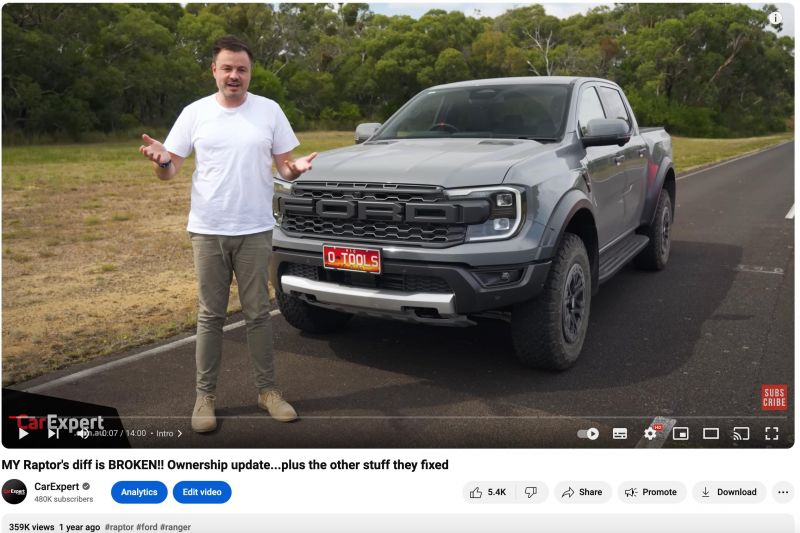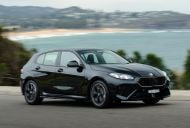OPINION
Queensland-based battery manufacturer Deep Cycle Systems (DCS) has filed a defamation case against an Australian-based YouTuber for a series of video reviews that alleging excessive battery degradation and not being fit for purpose.
The Australian-based YouTuber is Stephan Fischer who runs AllOffroad 4×4 Adventures TV, a channel primarily based on off-road adventuring and everything associated with it – including reviews of accessories that you could find on a typical off-road vehicle.
Fischer shot a set of videos alleging the batteries he had been given by DCS were recording very poor power retention rates, and as a result weren’t fit for purpose.
Fischer included testimonials from customers with similar issues, including one detailing how a battery catastrophically failed before it was even used in a vehicle. He alleges the battery blew its sides out, and also blew a hole in its lid while sitting on a shelf in a workshop.
In May of this year, DCS decided that it had enough of Fischer’s content and filed a case with the District Court of Queensland, which sought the following:
- Damages (including compensatory damages and aggrevated compensatory damages), the sum of which is to be determined
- Interest to the date of judgement pursuant to section 58 of the Civil Proceedings Act 2022
- Costs
It’s unclear in Fischer’s statement of events which content (or if it wasn’t content, which interactions) defamed the organisation and which content (or other) the organisation is opposed to.
But what we do know is that Fischer emphatically denies the allegations, and has started a GoFundMe campaign to help with the costs involved in defending himself. Fischer claims he has only given “honest opinions about the gear I’m using”.
Why am I writing about this? I’m writing about this because should DCS succeed, it sets an incredibly bad precedent for anybody genuinely providing an honest review of a product on the internet.
I think most people would agree you can’t just go out there and say whatever you want about a product or person without any basis of fact. But reviewing a product – for better or worse – comes with the territory of offering a product up for review. In fact it comes with the territory of selling a product to the public.
If a person, such as Fischer, rigorously tests a product and finds it doesn’t meet the manufacturer claims, a user is entitled to know about it – especially when the product claims to be superior.
While the case is still pending, Fischer has received a groundswell of support. It appears the lawsuit has worked in, what I imagine, is the exact opposite way DCS had hoped it would.
Fischer’s GoFundMe campaign has a target of $90,000 and it’s currently sitting at around $80,000 with over 1500 people donating to date. His channel has had a huge surge in subscribers and the saga has been covered by a number of high profile YouTubers in the USA and in Australia, amassing well over 1 million views covering the situation.
Since the news broke, DCS has taken down its Facebook page, and ProductReview alleges it has detected a number of “positive reviews for this listing [the DCS batteries review page] which we suspect have been falsely generated and have the potential to mislead consumers”.
A number of customers have also come out of the woodwork sharing their horror stories about the failure of DCS batteries they had purchased. One horror story from a “verified” purchase shows an image of a Holden Commodore SS on fire on the side of the road.
The user, Steven R, claims “Some time before the [alleged battery explosion], I had an 80Ah DCS Extreme battery professionally installed in the default battery location of my Holden Commodore by a licensed auto electrician. The vehicle had been driven several times without issue since the installation.”
“However, on August 24, 2023, while my son and I were traveling to Murray Bridge to visit a friend, we experienced a terrifying incident. A violent explosion erupted from the rear of our vehicle with such force that it dislodged the sunroof control module from the roof trim.”
“As I glanced in the rearview mirror, I was horrified to see a massive fireball. At the time, we were traveling at 100 km/h. The fear I felt in that moment was overwhelming as I tried to safely bring the vehicle to a stop and ensure my son’s safety.”
While there’s no way for us to verify the validity of this story, ProductReview claims the person submitting the review was “verified” and provided evidence about their experience with the product and/or company.
A number of other reviews reiterate the poor power retention of the batteries. One review claims their battery lost a portion of its charge not long after purchase and DCS refused to replace it, citing a warranty policy on its website.
The review was published 10 months ago by user Jye Halliwell, some seven months prior to DCS filing its suit against Fischer.
“Don’t buy a DCS under-bonnet battery, I had one of their 75Ah in a HiLux 2019,” it said. “Did not cycle the battery intentionally under 80% depth of discharge through the entirety of its life, which is 14 cycles and have lost 17-18% (62ah out of 75ah) of its capacity after 1 year and 5 months. The battery also has poor Bluetooth range, less than 5 meters (Out of claimed 10) and the state of charge is inaccurate.”
“DCS will not replace and or refund the battery under warranty stating that It must be less than 70% of its rated capacity to be determined defective. However, DCS has changed their policy after Oct 2022 to this new capacity retention figure. When I purchased the battery at the start of 2022, the policy stated the battery was determined defective at 80% capacity retention or less. DCS website states that the policy has not been changed since October 2021 (see picture).”
One thing uncovered by US-based YouTuber Louis Rossmann was the landing page for DCS’s warranty, which states a battery will only be replaced if the capacity drops below 70 per cent when used in engine compartments. The page with the warranty claims to have been last updated in October 2021.
Rossmann discovered when using an internet archive tool that the policy appears to have been updated in late 2023, where it originally showed a figure of 80 per cent instead of 70 per cent. But the “last updated” date on the content was never changed, which means the company may have to change warranty terms after a purchase.
This isn’t the first time DCS has gone to ground. Around four years ago Deep Cycle Systems Pty Ltd director Paul Tomolowicz was found to be the driver of a Toyota Fortuner that drove over vegetation at Fraser Island, according to Unsealed 4×4. After the story went live, DCS took its Facebook page down amid consumer criticism.
In my opinion, based on all the reviews on the internet prior to DCS filing its claim, it appears there is a systematic issue with the longevity of the brand’s batteries.
The smartest option, in my opinion, would have been to take this feedback on board and make better batteries. Instead, the company appears to have done the opposite and it has spectacularly backfired.
How does this relate to us, an automotive marketplace? It has the potential to set a pretty nasty precedent.
When we test cars, we are honest and impartial with our testing. If somebody is bad, needs improvement, or could affect you as the car’s owner, we want to make sure you know about it.
We don’t want to be in a position where we run the risk of being sued every time we provide feedback on a car that isn’t to a manufacturer’s liking.
Laws in Australia typically don’t allow a company to sue an individual for defamation if the company has more than 10 employees or is part of a larger organisation, but it still presents a concern regardless.

